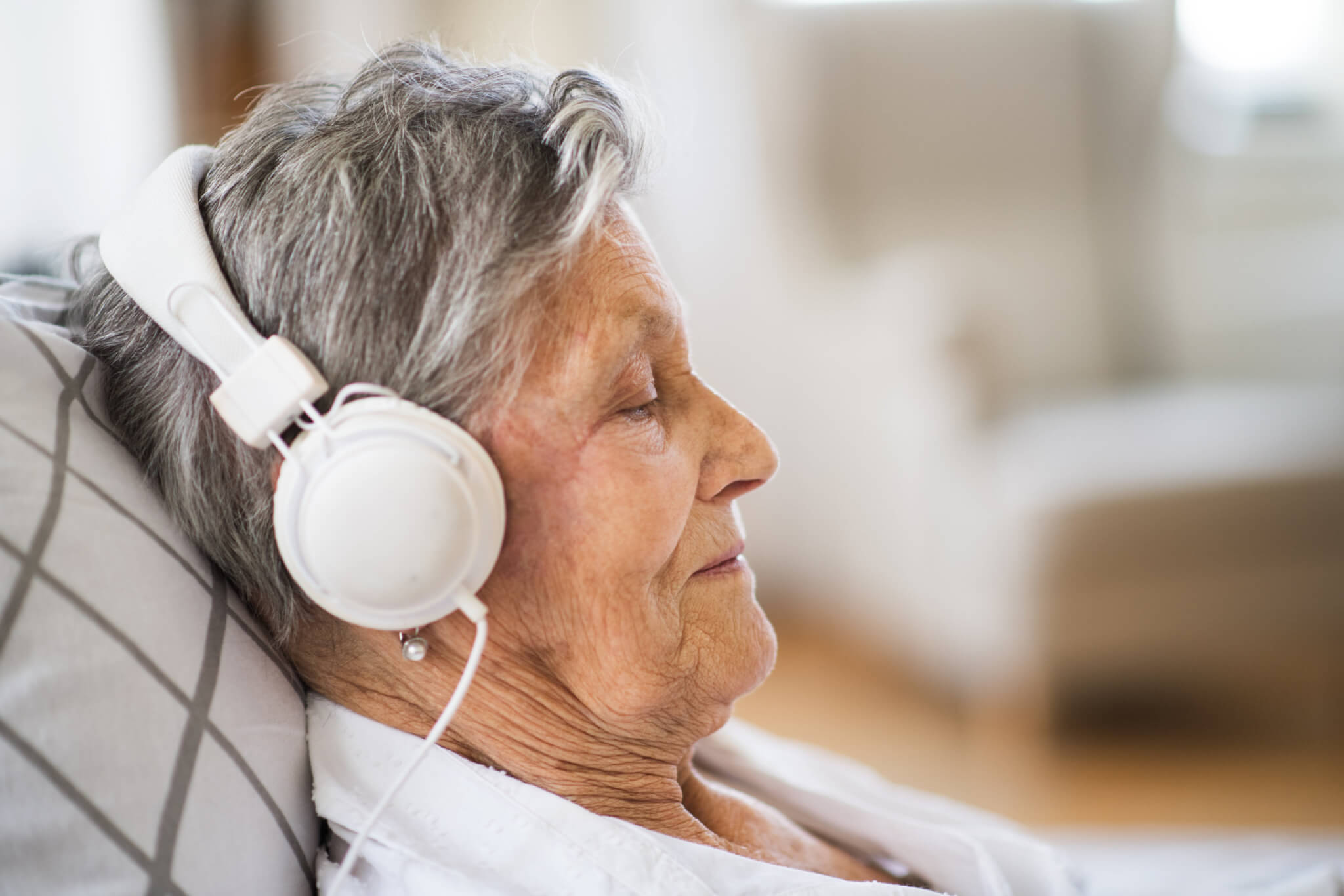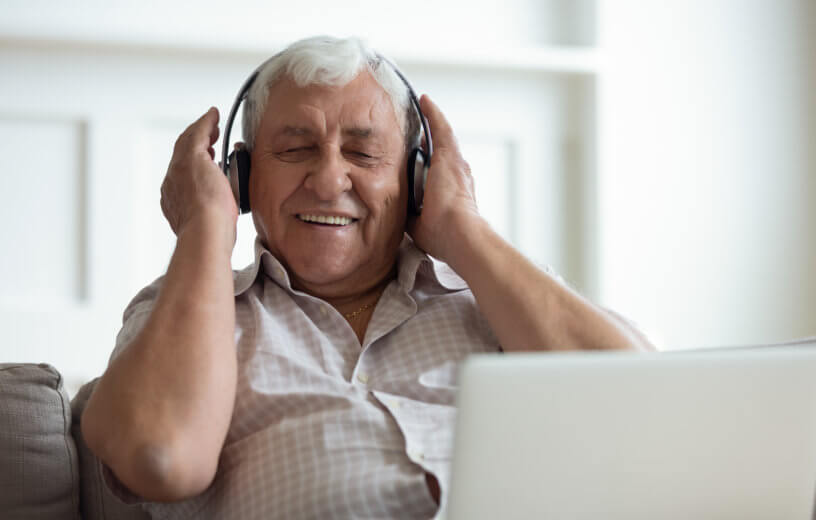ANN ARBOR, Mich. — The right tune at the right time can make a perfect moment even better, and that rings true at any age. New findings from the University of Michigan’s latest National Poll on Healthy Aging sing the praises of music when it comes to quality of life for older adults. Among over 2,600 older individuals (ages 50-80), 75 percent said music helps them relieve stress and relax, while 73 percent believe music brings them joy, and 65 percent look to music as a source of improved mental health and better mood.
That’s not all: 60 percent use music to motivate or energize themselves, while 31 percent said music helps keep the mind sharp.
You don’t have to be a musician or singer to reap the numerous rewards associated with music. What’s important is keeping music in one’s life in one way, shape, or form (listening, playing, whistling, etc). Close to all respondents (98%) reported benefiting in at least one health-related way from music. Meanwhile, 41 percent consider music “very important” in their lives, and 48 percent used the phrase “somewhat important.”
“Music has the power to bring joy and meaning to life. It is woven into the very fabric of existence for all of humankind,” says Joel Howell, M.D., Ph.D., a professor of internal medicine at the U-M Medical School who worked with the poll team, in a media release.
Music also offers tangible benefits tied to numerous health-related ailments.
“We know that music is associated with positive effects on measures from blood pressure to depression,” Howell says.
This latest survey was put together at the U-M Institute for Healthcare Policy and Innovation and supported by AARP and Michigan Medicine, the University of Michigan’s academic medical center. Researchers asked a nationally representative sample of older individuals about their experiences with and feelings toward listening to and making music.

While not everyone is a musician, many respondents did, in fact, report making music with other people at least occasionally (singing or playing an instrument). Eight percent said they’ve sung in a choir or other organized group at least a few times over the prior year. Another eight percent reported playing an instrument with other people at least occasionally.
All in all, the poll reveals that 46 percent of older adults sing at least a few times weekly, and 17 percent play a musical instrument at least a few times annually.
Unsurprisingly, most respondents reported listening to music; 85 percent listen to songs at least a few times weekly, 80 percent have watched musical performances on television or the internet at least a few times over the past year, and 41 percent have attended at least a few live musical performances over the last year. Older adults with higher incomes and more education tend to attend more concerts.
The research team behind these insights explains their work showcases additional differences between groups in music listening habits and health impacts. Adults with poor or fair physical health, as well as those who reported feeling isolated, were less likely to listen to music on a daily basis. Older Black adults were also more likely than others to sing in a choir during the past year, and older Black and Hispanic adults were both more likely to say music is very important to them.
“While music doesn’t come up often in older adults’ visits with their usual care providers, perhaps it should,” adds poll director Jeffrey Kullgren, M.D., M.P.H., M.S. “The power of music to connect us, improve mood and energy, or even ease pain (like 7% of respondents said it does for them), means it could be a powerful tool.”
Dr. Kullgren is a primary care physician at the VA Ann Arbor Healthcare System and associate professor of internal medicine at U-M.
Prof. Howell notes that music helps people keep in touch with one another over the course of a lifetime. On a related note, 19 percent of respondents said music is more important to them now than when they were young. Another 46 percent said it’s just as important to them now as then.
With concerns rising regarding the health effects of loneliness and social isolation on Americans in general, and especially among older adults, music can serve as a powerful tool for connecting people and supporting healthy aging, Prof. Howell says.
“Music is a universal language that has powerful potential to improve wellbeing,” concludes Sarah Lenz Lock, senior vice president of Policy and Brain Health at AARP and executive director of the Global Council on Brain Health. “AARP’s own research shows that music can play an important role in healthy aging by improving our moods, fostering social connections and, potentially, enriching our brain health.”
